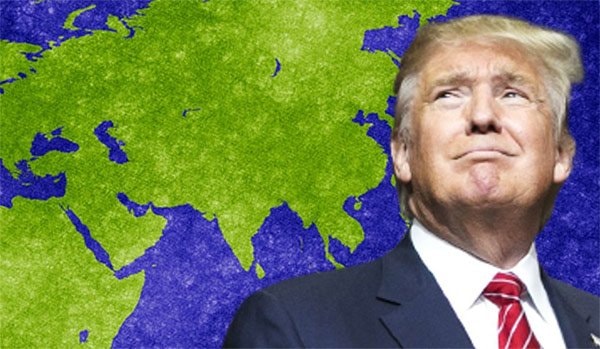Why President Trump should attend APEC in Vietnam
How will the new US administration under President Donald Trump approach Asia and ASEAN?
According to expert Prashanth Parameswaran in The Diplomat magazine, two upcoming events, including the APEC Summit in Vietnam and the East Asia Summit in the Philippines in November, are considered an early test of US engagement in the region in the context of the White House's Asia policy taking shape.
 |
| US President Donald Trump |
President Trump is expected to struggle to match his predecessor, Barack Obama, in his focus on Asia. Some say he is pursuing a foreign policy that is more pragmatic.
Therefore, it would certainly be a welcome development if President Trump really paid attention to Southeast Asia and ASEAN, especially when this is the occasion of the 50th anniversary of ASEAN's founding and the 40th anniversary of US-ASEAN relations.
In fact, the past three US presidents have all skipped summits in Asia for various reasons. Of course, the US leader’s attendance is not the only measure of Washington’s engagement in the region. And the US president can also send representatives to attend, and he can visit individual countries if necessary.
But this year is special. For Donald Trump, it is his first year as the leader of the United States, and it is also the first time he has the opportunity to attend two summits in Asia.
This is a valuable opportunity for the new US President to ease concerns surrounding Washington's commitment to the region, while defining the new administration's approach to Asia in general and Southeast Asia in particular, in areas such as economic policy, alliances and partnerships...
Any effort by the Trump administration to assess Southeast Asia policy should begin with an understanding of the region’s place in broader US foreign policy, argues expert Prashanth Parameswaran.
Southeast Asia is a diverse region that has interacted with many major powers over the centuries. Yet, Southeast Asia has traditionally occupied a marginal role in U.S. foreign policy, unlike China or Japan.
In the late 1990s and early 2000s, Southeast Asia’s importance skyrocketed, but U.S. policy did not adjust to give the region the attention it deserved. Some steps were only taken during President George W. Bush’s second term.
Barack Obama is the first US President to really pay attention to the importance of Southeast Asia and promote US commitment to this region. And as part of the policy of pivoting to Asia, Mr. Obama has paid great attention to Southeast Asia as well as to ASEAN.
Under Obama, the US ratified the Treaty of Amity and Cooperation, participated in the East Asia Summit, annual US-ASEAN meetings, and hosted the first US-ASEAN meeting in the US.
The Obama administration has also stepped up efforts to build regional alliances and partnerships, from signing new comprehensive and strategic partnerships with countries like Indonesia, Malaysia, Singapore, and Vietnam to signing an expanded Defense Cooperation Agreement with the Philippines.
The ASEAN test is therefore of great significance to the new US leader. It will show whether Mr Trump can maintain America’s role as a great power willing and able to work to promote greater security, prosperity and democracy in the Asia-Pacific while working with Southeast Asian countries on common challenges.
In particular, the APEC conference in Vietnam is considered an opportunity for the US President to balance his decision to withdraw from the TPP agreement by moving towards bilateral trade agreements with other countries. His presence at the conference could open up opportunities for Washington to seek trade and investment agreements.
According to Vietnamnet.vn
| RELATED NEWS |
|---|
